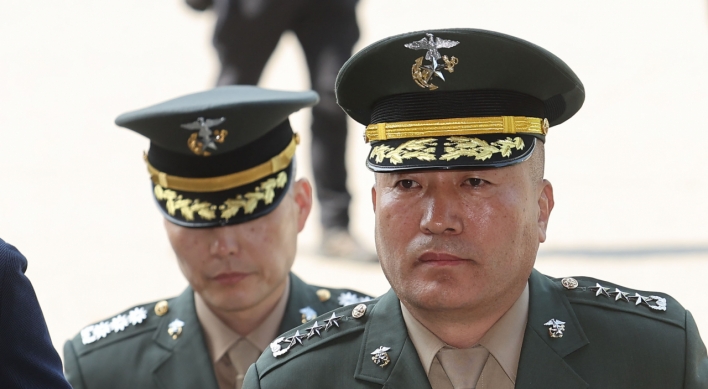Exact number of POWs still unknown
Seoul estimates 500 still alive in North Korea
By Korea HeraldPublished : June 21, 2013 - 20:37
Six decades after the end of the Korean War, the exact number of South Korean prisoners of war in North Korea is still unknown, as Pyongyang refuses to offer any information about the captives.
Its repeated argument is that there are no POWs living there against their will.
Based on statements from North Korean defectors and POWs who returned to their homeland, the Seoul government estimates that some 500 POWs are still alive in the North. Their average age is around 80.
In 1994, Army 2nd Lieut. Cho Chang-ho became the first POW to return to Seoul. A total of 80 have since come back home and as of May, 29 of those have passed away.
A U.N. Command report issued on Aug. 7, 1953 put the number of South Korean soldiers who went missing in action during the war at 82,318.

After the cease-fire on July 27, 1953, Pyongyang returned only 8,343 POWs, while the U.N. authorities repatriated 82,493 POWs ― 75,823 North Korean POWs and 6,670 Chinese troops.
Until the 1960s, the U.N. Military Armistice Commission had demanded Pyongyang return POWs on more than 10 official occasions. But the North turned a deaf ear. It claimed that all of them had returned home, died or converted to communism.
Between 1954 and 1998, the Seoul government confirmed that there were around 24,000 POWs in the North at the end of the war, based on surveys of their families and military records of participants in combat missions.
The Seoul government has stepped up efforts to account for them in recent years.
From statements of returned veterans and defectors, the Seoul government now manages a list of around 500 POWs who are thought to be alive.
South Korea has recently received support from the Chinese military authorities for its efforts to bring back home the former soldiers who crossed the border into China. Old POWs face a tough challenge to make their way into the South due to the risk of being repatriated if they are caught in China.
By Song Sang-ho (sshluck@heraldcorp.com)
Its repeated argument is that there are no POWs living there against their will.
Based on statements from North Korean defectors and POWs who returned to their homeland, the Seoul government estimates that some 500 POWs are still alive in the North. Their average age is around 80.
In 1994, Army 2nd Lieut. Cho Chang-ho became the first POW to return to Seoul. A total of 80 have since come back home and as of May, 29 of those have passed away.
A U.N. Command report issued on Aug. 7, 1953 put the number of South Korean soldiers who went missing in action during the war at 82,318.

After the cease-fire on July 27, 1953, Pyongyang returned only 8,343 POWs, while the U.N. authorities repatriated 82,493 POWs ― 75,823 North Korean POWs and 6,670 Chinese troops.
Until the 1960s, the U.N. Military Armistice Commission had demanded Pyongyang return POWs on more than 10 official occasions. But the North turned a deaf ear. It claimed that all of them had returned home, died or converted to communism.
Between 1954 and 1998, the Seoul government confirmed that there were around 24,000 POWs in the North at the end of the war, based on surveys of their families and military records of participants in combat missions.
The Seoul government has stepped up efforts to account for them in recent years.
From statements of returned veterans and defectors, the Seoul government now manages a list of around 500 POWs who are thought to be alive.
South Korea has recently received support from the Chinese military authorities for its efforts to bring back home the former soldiers who crossed the border into China. Old POWs face a tough challenge to make their way into the South due to the risk of being repatriated if they are caught in China.
By Song Sang-ho (sshluck@heraldcorp.com)
-
Articles by Korea Herald



















